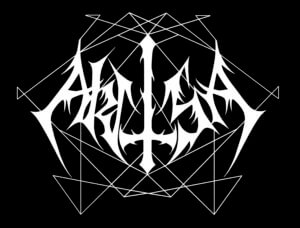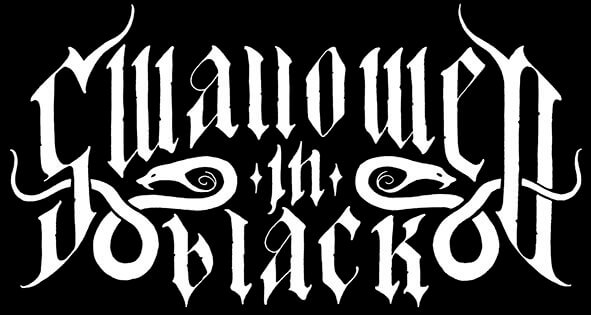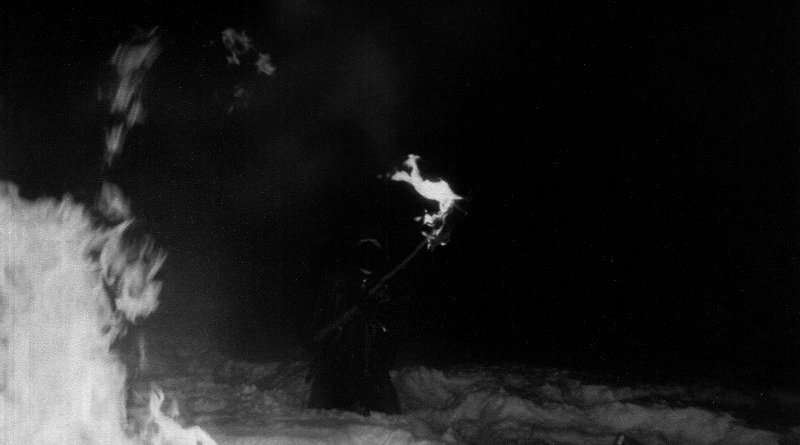“THE HOPES OF YOUTH HAVE BEEN DROWNED IN THE TEDIOUS, DISCOURAGING AND UNSURPRISING EVOLUTION OF HUMAN LIVESTOCK” – OUTRE-TOMBE (AKITSA)
A score of spirit-sapping, soul-destroying years has passed since Outre-Tombe audaciously lit the touchpaper for Québécois Black Metal by issuing Akitsa’s impulsive, incendiary and inspirational rallying cry ‘Sang nordique’ – a defiant and delirious manifesto of raw Black Metal misanthropy. His credo, convictions and commitment to the underground undiminished by the relentless passage of time, the original enfant du Nord discusses discovering his true self through isolation and individualism; how the maltreatment of patriots in Québec inspired him to make music referencing French-Canadian struggles; generating unconventional Black Metal through the consumption of multiple musical genres; the persistent dilution of Black Metal’s original ethos; perpetuating pure underground plague through Tour de Garde; spreading darkness, fury and hatred; and getting back to basics on the forthcoming seventh Akitsa full-length.
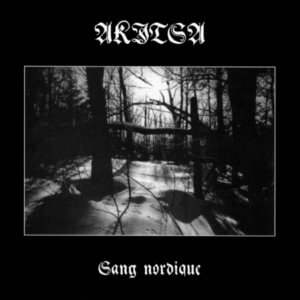 Almost unbelievably, two decades have passed since Akitsa cursed the world with landmark sophomore full-length ‘Sang nordique’ – a raging yet majestic and triumphant insurrection of proud, defiant, belligerent and dare I say dissident Black Metal misanthropy. ‘Enfants du Nord, fils du froid, Combats pour tes origines et ta culture, Les forêts épineuses où le vent soufflé, La neige blanche d’une rare pureté’ – do these sentiments still burn bright within you today?
Almost unbelievably, two decades have passed since Akitsa cursed the world with landmark sophomore full-length ‘Sang nordique’ – a raging yet majestic and triumphant insurrection of proud, defiant, belligerent and dare I say dissident Black Metal misanthropy. ‘Enfants du Nord, fils du froid, Combats pour tes origines et ta culture, Les forêts épineuses où le vent soufflé, La neige blanche d’une rare pureté’ – do these sentiments still burn bright within you today?
“Yes, they are burning within me today but in a different form than they were then. As you mentioned, two decades have passed since ‘Sang nordique’ was released. Back in 2002, I had a different perspective of life, reality and society. The world was also a very different place… the underground network was still widely active via letters through traditional mail, the internet was slowly emerging, social media didn’t exist yet, etc. What strikes me in the first part of the lyrics you quoted, ‘Enfants du Nord, fils du froid, Combats pour tes origines et ta culture’ is that I used to write as if I were sending orders. That is a sign of my young age as I don’t write lyrics in that way anymore. I now only speak for myself. It’s a personal and individualistic manner of writing which I feel more connected to. During those two decades, I slowly isolated myself from any form of activism and found my true self in individualism. Of course, I’m still proud of my origins and my culture, but I have no interest in being part of any movements that fight for those causes today. As for the second part of the lyrics you quoted, ‘Les forêts épineuses où le vent souffle, La neige blanche d’une rare pureté’… these words resonate as much within me today as they did back then. I’m currently living in the city of Montréal surrounded by concrete buildings, sidewalks, boulevards, highways and taxpayers. Escaping this tiresome environment and following nature’s call is an obligatory path for me. The thorny forests, the mountains covered with white snow where cold winds blow – those grandiose nordic landscapes are highly inspiring to me every time. I love winter, it’s without a doubt my favourite season. Therefore, ‘Sang nordique’ still holds a special place in my heart today.”
On the surface at least, the Black Metal landscape and the world in general have changed (but not necessarily improved) since those glorious seminal days of Akitsa. To what extent have your ideologies and / or convictions shifted or evolved / abated or intensified in line with the incessant march of time? Or is it invariably always a case of ‘plus ça change, plus c’est la même chose’?
“The journey toward the future and the evolution of time are experiences that all living beings – some more consciously than others – are inevitably confronted with. Nothing stagnates in this mortal world where the human spirit seems naturally drawn to admire the past glories of its history. Human imagination has a distorted view of the past, often forgetting what went wrong and romanticizing what was supposedly wonderful, while also having a distorted view of the future, often nightmarish or even apocalyptic, which somehow makes sense. No one can dispute the fact that the apocalypse will absolutely be in our future. Walking towards armageddon is not a conviction but a condemnation given at birth. Following this principle of thought, my outlook on life never really intensified or shifted, but rather evolved over time. In general, I would say that the older I get, the more disenchanted I become. The hopes of youth have been drowned in the tedious, discouraging and unsurprising evolution of human livestock. Life experiences are rather unfortunate in the end. When analysing life as human beings, we are definitely aware of the fact that we encounter many great people during our lifetime. A certain number of them shine more than others and are of virtue. They are stimulating, intelligent, radiant and so on. However, examining human history and even seeing the current state of humanity, we can conclude that humans as a collective group are bound to fail. As you can tell, having had more time to observe my surroundings throughout the past few years, it has taken a toll on my view of life. It is now an utterly nihilistic take on society and I’m of the conviction that all hopes are lost for humanity’s future. More than ever: « plus ça change, plus c’est la même chose. »
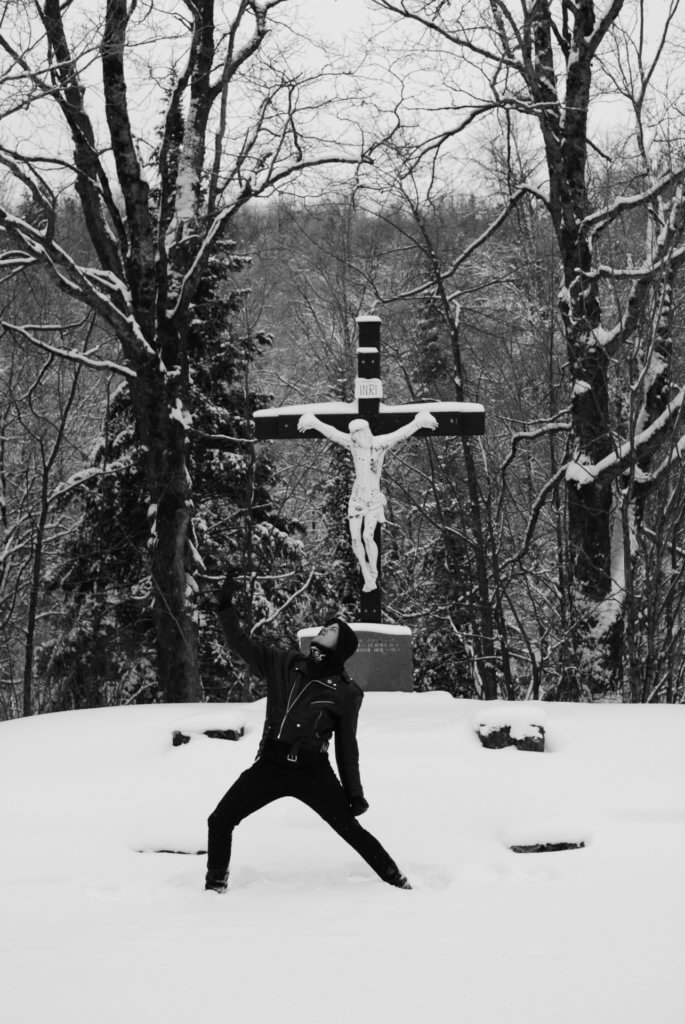 Traditionally, Black Metal has a strong sense of place and rootedness in one’s native soil and terrain. Akitsa is by its very nature by and of Québec. Is it inevitable that the heritage, culture, tradition, values, geography, history and struggles of one’s homeland will bleed into their music and art, or have you consciously used Akitsa as a vehicle to express these sentiments?
Traditionally, Black Metal has a strong sense of place and rootedness in one’s native soil and terrain. Akitsa is by its very nature by and of Québec. Is it inevitable that the heritage, culture, tradition, values, geography, history and struggles of one’s homeland will bleed into their music and art, or have you consciously used Akitsa as a vehicle to express these sentiments?
“Generally speaking, it is obviously inevitable that a band’s place of origin will affect its sound, whether through the musical instruments and gear available locally or through its distinctive popular culture. As for me, I believe that the immediate environment in which I grew up had a huge impact on my inspiration when the time came to create Akitsa’s music. The heritage, culture, traditions, values, geography, history and struggles of Québec have been naturally integrated into the concept of Akitsa. I come from an absolute French-Canadian background. My grandfather had told me stories of oppression by the wealthy Anglo-Saxons that he had to deal with in the 1950s. Those stories were also known by my dad and clearly had an impression on him as well. He was a convinced separatist and refused to speak English almost all his life. At my end, when Akitsa started, I was passionate about Québec history. I was reading books about the first French settlers who crossed the Atlantic Ocean to settle down in North America, the Lower Canada Rebellion of 1837-1838, the incarceration and the public execution by hanging in Montréal of several Patriots who had fought and so on. Therefore, it had always been clear in my mind that if I was doing a Black Metal project, all the lyrics would be in my native language and I would be singing about French-Canadian struggles and fights. To mention that I consciously used Akitsa as a vehicle to express these thoughts about Québec would not be a lie, but to say that it was done instinctively would be more accurate.”
More than a quarter of a century has passed since Québec came frustratingly close to securing sovereignty via an-almost-split-decision referendum. Is the separatist cause now a lost cause or is there still an insatiable desire for independence amongst French-Canadian patriots there? Or has the concept of decentralization / independence become an unachievable utopia in an age of ominously encroaching globalism and all that entails?
“The situation has changed enormously since the last referendum. Over the years, I feel like the hope of being independent has faded in the general population. Today, it is no longer a mass movement but rather a conviction held in a few quasi-sectarian circles. The situation of Québec independence returned to what it was before the insurrection of the early ‘seventies. I believe that the desire for sovereignty may return in the future among the populace, but it will probably be too late to achieve it.”
Québec is surely one of the most remote and preserved places on the planet – about seven times the size of the UK but with only about one-eighth of the population. Half of the province’s land is covered in forest and it is home to over one million lakes and streams. Add in freezing-cold winters and it’s the ideal setting for ice-cold Black Metal. Do you identify with the wild nature and countryside of this region and do you spend time exploring its uncivilised outposts?
“First of all, I don’t agree that Québec is one of the most reclusive regions on the planet. Almost the entire population of Québec lives around the St. Lawrence River, and isolated places in Québec are virtually void of human life. Far from being left to itself, Québec is surrounded by the United States of America on its southern border and by the province of Ontario on its western border. For my part, I live in the Montréal metropolis as I mentioned earlier, that’s where I spend most of my time. Therefore, I identify more with an urban lifestyle because I have never lived in the countryside. However, I try to get away from the city when I have time, especially in the winter. Probably because I deeply admire winter landscapes and also because I am a winter sports enthusiast. There is one thing here that is not necessarily purely Québécois but still interesting … you can travel from the wilderness to the heart of a metropolis in no time. The contrast between each region and each environment is also something I identify with a lot.”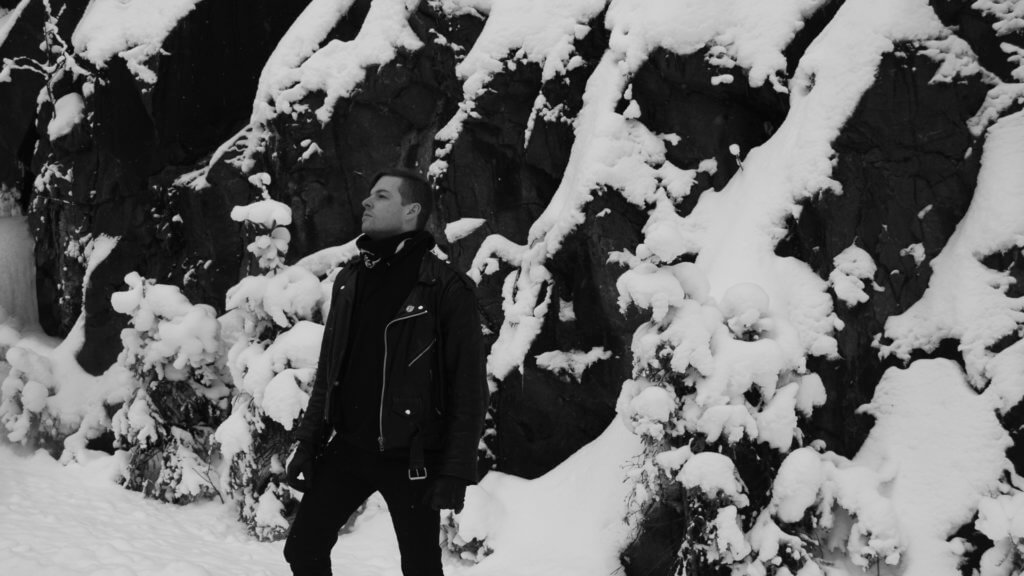
Musically, Akitsa is a conspicuous outlier, standing apart from the sea of sameness, possessed with a pioneering sound in that you do not create what might be considered conventional or standard Black Metal. I could count on the fingers of one hand the Black Metal bands who successfully channel a unique and distinctive sound without compromising on authenticity. Would you attribute your ability to do so to the rich medley of unorthodox, non-metal (punk, industrial, crust, ambient, noise) influences that you have either consciously or unconsciously incorporated into your music?
“There is no doubt that unconsciously the multiple musical genres that I consumed at the beginning of the project had an indirect impact on my ability to generate these atypical rhythms. Overall, Akitsa’s sound was created spontaneously with an impulsive desire to create misanthropic music inspired by the darkest projects I knew of at the time. Technological and physical limitations have contributed to forging Akitsa’s distinctive, peremptory sound. Every external influence of Akitsa was added inadvertently without any kind of music theory or endless planning. The recording sessions were always very impetuous and instinctive, which certainly adds to the whole character and vibe of the aural creations.”
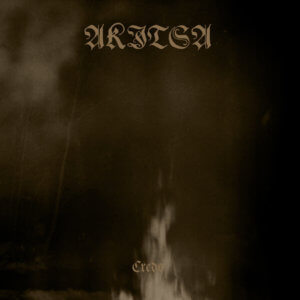 Akitsa has aged gracefully and evolved organically, without ever compromising or stepping back. While the abrasiveness and anguish of old are still evident in abundance. ‘Credo’ is also the most diverse, poignant, emotional and powerful album to date. ‘Le monde et ma bile‘, for example, is an inventive and influential spine-tingling career highlight. Is ‘Credo’ an album that you could not have made in 2001 and, by the same token, is ‘Sang nordique’ one that could not have materialized in 2017? Does everything have its time and place?
Akitsa has aged gracefully and evolved organically, without ever compromising or stepping back. While the abrasiveness and anguish of old are still evident in abundance. ‘Credo’ is also the most diverse, poignant, emotional and powerful album to date. ‘Le monde et ma bile‘, for example, is an inventive and influential spine-tingling career highlight. Is ‘Credo’ an album that you could not have made in 2001 and, by the same token, is ‘Sang nordique’ one that could not have materialized in 2017? Does everything have its time and place?
“It is obvious that ‘Credo’ could never have been forged in the early 2000s for multiple reasons. First, the themes addressed on ‘Credo’ are a sign of a maturity that was not present during the development of ‘Sang nordique’. Second, ‘Credo’ was conceived when I had much more experience as a musician. Although I’m not yet a virtuoso, my ability to compose music has clearly evolved since the days of ‘Sang nordique’, in part because Akitsa started accepting a handful of gig offers. Third, ‘Sang nordique’ is one of Akitsa’s most reckless albums, it was recorded in a very short time as a reaction to the events of September 11, 2001. On the contrary, ‘Credo’ was formulated over a long period of time which could partly explain why the album seems deeper and more intricate.”
The September 11 attacks represent a landmark, emotive and highly contentious moment in contemporary history, the shockwaves from which can still be felt around the world today. What was it specifically about the events of that shameful and unforgettable day that resonated so strongly with you at the time?
“This event was kind of an eye opener for me, I was at the very beginning of my adult life and 9/11 brought out a lot of ideas I had about life. First of all, it was very visual because all the media were constantly broadcasting the images of the drama live. Second, the fact that these were capitalist airline planes used as weapons by devout Islamist spiritual warriors is so surreal. It is true that many planes were hijacked prior to September 11, 2001, but none were ever used as a weapon to crash into iconic symbols of US imperialism. Ultimately, I would say that everything that happened that day can be linked to what we are going through today in one way or another… All aspects of the attacks of September 11 are part of political tensions today. Whether it’s the planes crashing into the twin towers evoking an environmental warning in itself. We could also say that these attacks demonstrate the violent clash between certain cultures and different religions that can still generate atrocious actions today. Without forgetting the mass media which had a categorical importance in the dissemination of images which changed the perception of life for some of us.”
Black Metal has always been divisive, contentious and controversial. The extreme behaviour, views, names, imagery, music and lyrics of the scene’s trailblazers is the stuff of legend, but things seem to have quietened down. Is the same fanaticism of old still present (but maybe more difficult than ever to find)?
“I would dare to say that most people who are interested in Black Metal do not know what its true essence is. The scene has become humanized which has the effect that Black Metal follows whatever the current cultural or political trends are. Just as it happens in surface society, Black Metal has experienced a drastic polarization in recent years and has mostly lost its original ethos. In my eyes, Black Metal should not react to what surrounds it but isolate itself from it. Its objective is to disregard the living and above all not to act in social and political causes. The fanaticism of yesteryear is still present but can only be found by those beings who know what it really was in all its purity, its ferocity, its mystery…”
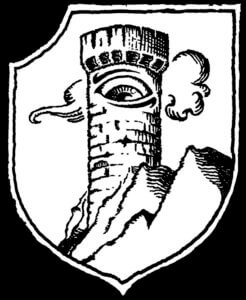 Are these qualities that you look for when considering whether or not to issue releases on your label? Tour de Garde is an iconic label, synonymous with high-quality releases possessed with the most untainted underground authenticity. Are you only interested in working with artists who subscribe to the original spirit and ethos of Black Metal? And, on a wider note, is ideology in Black Metal almost as critical as the actual music itself?
Are these qualities that you look for when considering whether or not to issue releases on your label? Tour de Garde is an iconic label, synonymous with high-quality releases possessed with the most untainted underground authenticity. Are you only interested in working with artists who subscribe to the original spirit and ethos of Black Metal? And, on a wider note, is ideology in Black Metal almost as critical as the actual music itself?
“Yes, these are qualities I look for in the bands I work with, of course. The goal with Tour de Garde is to perpetuate the memories I have of what I consider to be the ‘Pure Underground Plague’. In other words, it’s to keep alive the purity of a feeling I felt when I started getting involved in the underground around 1994 as a tape trader. Basically, this does not mean being interested only in Black Metal but also in the genres that surround it. With Tour de Garde, I consider it excessively important to continue to explore the fields of darkness and not be on autopilot. Otherwise, we end up producing ‘Black Metal’ albums that are more like paint-by-numbers than real music. I’m interested in working with artists who either have a philosophy I can relate to, or who bring me back to the original spirit of my vision of the underground. It doesn’t have to be both at the same time, although it’s obviously better when it all comes together. Black Metal isn’t critical, it’s an unwritten law known by those few who never followed any other laws than this one.”
Ultimately, your art is all about musical expression and sheer dedication to underground music. You have been doing this for so long now that I’m sure it’s become second nature. Do you still enjoy it as much as you did in the beginning? The thrill of creating and releasing new records (and tapes!), performing live gigs, being part of a movement that exists outside of convention and rages against the system – do these things still fuel your fire? Do you still feel the same sense of wonder and affinity picking up a guitar as you did when you were starting out on your musical journey?
“Obviously, I seek to be as fascinated and curious about Black Metal today as I was when I discovered the style. However, everything has changed so much since the early ‘90s that it is unfortunately impossible to have the same fascination with the genre as back then. Also, the idea that it’s enjoyable to be involved in the underground is a misconception. When you decide to dedicate yourself to the underground with fervour, you have to do it conscientiously and seriously. I made this choice out of loyalty to the underground network and because I thought I had something interesting to offer. I knew it involved a lot of work and a lot of sacrifice. Basically, nothing is similar today to what it was in the past at this level… On the other hand, the creative part of my involvement goes through a process quite similar to the one that took place at the beginning of Akitsa. There has never been a “sense of wonder” when it comes to Akitsa, truth be told, it only involves inherently dark, sinister and angry visions and feelings. I remember being outraged by the state of the local Montréal scene in the late ‘90s, it lit the fire of my rage to erupt raw hatred into noise. These days, I don’t care what’s happening on the local Montréal scene, but I still have an intense disdain for some of the music I see spilling into the underground. It definitely makes me want to pick up the guitar and press play on the 4-track so that the fury I feel in my heart comes back to life as before.”
Where do you go from here with Akitsa? A rich legacy exists already but do you aspire to expand even further upon this? Not that the world has ever been stable or logical during our lifetimes, but has the utter madness and inanity that has materialised since ‘Credo’ was released inspired you in any way to create some new music? An Akitsa soundtrack to the strangest times of all would be most welcome…
“Akitsa is still alive and well. A new Akitsa album is in the works and should see the light of day in mid-2023 if all goes according to plan. The material to come is different from what we can hear on ‘Credo’. It’s sort of a return to basics with more raw and minimalist sonorities.”
